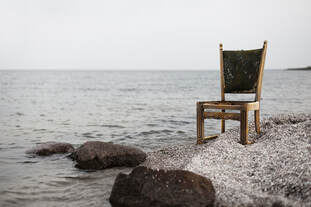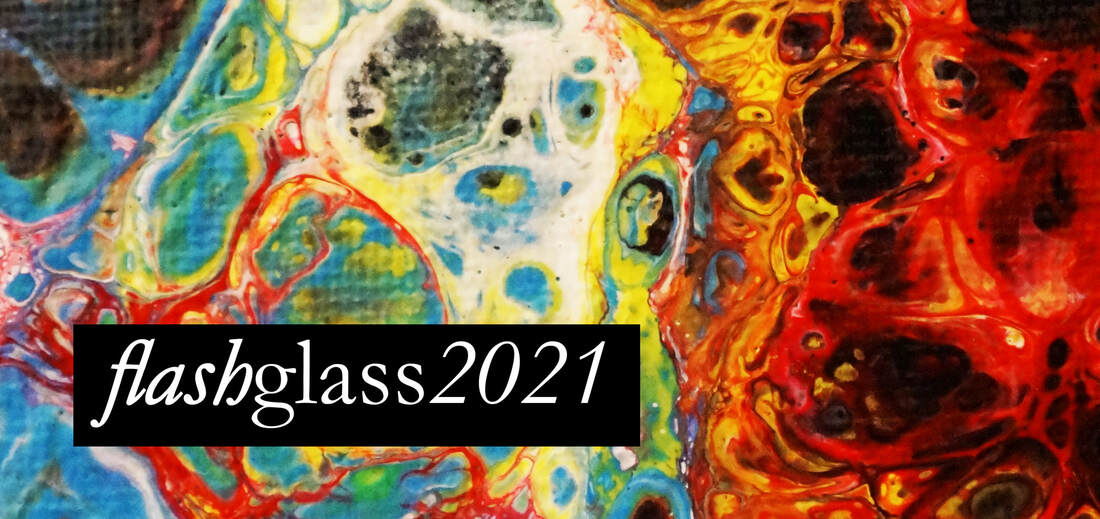 After his death, my grandfather’s easy chair remained at the edge of the Black Sea, just over his property line, in the middle of the Yıldız’ small stretch of coast. He set it there to spite Gülben Yıldız, with whom he enjoyed a rivalry so bitter and ancient that no one quite remembered its origins, though it appeared to predate the fall of the Ottoman Sultanate. The two men had engaged in silent warfare for every decade of my youth in the form of theft, libel, and sabotage, springing leaks in one another’s boats, spreading ruinous rumors, and undercutting the other at market. When the two of them were old and unsteady on their feet, the rivalry culminated in my grandfather’s chair slowly rotting in the Yıldız’ sea air. Afternoons he smoked hand-rolled cigarettes there on their property, afghan on his lap, pointedly ignoring the entire Yıldız brood, who gathered atop the bluff to glare at him. If they started to throw things—fruit and driftwood—he put up the umbrella he brought for the purpose and remained still, smoking and watching the waves. For whatever reason they never tried to move the chair. When grandfather died, old Gülben took over the seat. Gülben didn’t smoke, so his wife Nilgün started bringing him his fishing nets to repair there. Their children had one by one moved away, to America and Germany and Dubai. He hardly had to look at the nets while he worked, his expert hands a blur. I watched him from the edge of his land. The next afternoon I watched again. And the next. I wanted to see how his hands worked so fast. One evening he motioned me over. I sat next to the chair and watched his hands. He didn’t say a word to me but angled the seat so I could see better. When Nilgün brought his dinner she brought a plate for me too, and a small glass of Rakı. When it was time to turn in,Gülben rose and stretched. Before leaving he rested his hand on my shoulder and left it there a long time. I looked up and saw that he had tears in his eyes. We watched the sea together. He is gone now, and so is the chair. But whenever I return to this coast I can feel that hand, its skill and gravity, resting on my shoulder. Saramanda Swigart is thrilled to be writing fiction exclusively after years of writing advertising copy and corporate literature. She completed an MFA in creative writing from Columbia University and a supplementary degree in literary translation. Her short fiction and poetry has appeared or is forthcoming in Reed, The Alembic, Border Crossing, The Broken Plate, Caveat Lector, Clarion, Diverse Arts Project, East Jasmine Review, Euphony, Fogged Clarity, Glint Literary Journal, Green Hills Literary Lantern, The Grief Diaries, Levee Magazine, The Literati Quarterly, OxMag, The Penmen Review, The MacGuffin, Ragazine, Superstition Review, and Thin Air; her work has received an honorable mention from Glimmer Train and a 2017 Pushcart Prize nomination. Saramanda is working on translating some of the more salacious stories from Ovid’s Metamorphoses. Saramanda teaches at City College of San Francisco.
0 Comments
Leave a Reply. |
FLASH GLASS: A MONTHLY PUBLICATION OF FLASH FICTION, PROSE POETRY, & MICRO ESSAYSCategories
All
COVER IMAGE:
|
|
Glassworks is a publication of Rowan University's Master of Arts in Writing 260 Victoria Street • Glassboro, New Jersey 08028 [email protected] |
All Content on this Site (c) 2024 Glassworks
|


 RSS Feed
RSS Feed
